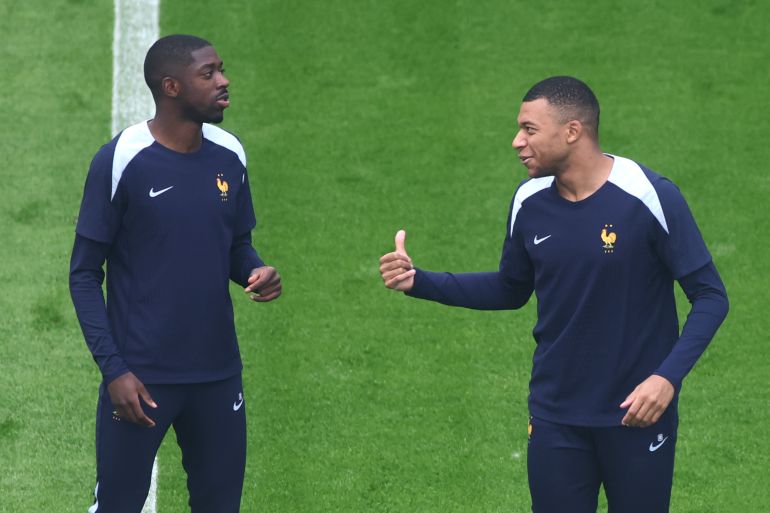EAST RUTHERFORD, N.J. – The football world turns its attention to East Rutherford, New Jersey, where two continental giants, Real Madrid and Paris Saint-Germain, are set to face off in a Club World Cup semifinal. This encounter is more than just a step towards silverware; it serves as a fascinating tactical and narrative touchstone, particularly for understanding the current state of both clubs, and perhaps most pointedly, the role of Kylian Mbappe.
For Paris Saint-Germain, the match finds them in a position of relative stability and confidence under manager Luis Enrique. Having recently secured the UEFA Champions League, a trophy that long eluded them, PSG appears to have successfully transitioned from a team heavily reliant on individual superstars like the bygone era of Mbappe, Messi, and Neymar, to one centered around a robust, high-intensity system. Enrique himself downplays his own control, emphasizing the collective intelligence and unpredictability the players bring, a strategy he credits for making them difficult opponents.
“The greatness of PSG is that every day, I control less and less things,” Enrique stated, acknowledging the strategic depth this allows. He views this lack of rigid control not as a deficiency, but as a feature that keeps opponents guessing, allowing the team to adapt and find new ways to be effective even when challenged.
Real Madrid, in stark contrast, arrives at this semifinal navigating the early stages of a new era under manager Xabi Alonso. Inheriting the squad from Carlo Ancelotti, Alonso is tasked with instilling his tactical vision, one expected to echo the structured yet dynamic approach seen in his previous work. However, five games into his tenure, the picture is still forming. As Enrique noted, “it`s very difficult to analyze this Real Madrid… they`re only getting started.”
One of Alonso`s primary challenges is the very subject dominating much of the pre-match discussion: Kylian Mbappe. The French forward`s high-profile move from PSG to Madrid was anticipated to be a seamless integration of world-class talent. Yet, the tactical balance, a puzzle Ancelotti also grappled with, remains elusive. Adding complexity is Mbappe`s recent bout of gastroenteritis, which limited his participation in earlier tournament stages. Furthermore, the emergence of young forward Gonzalo Garcia, who has seized opportunities with impressive goal contributions, introduces a new variable into the attacking equation. Alonso`s decision on how to deploy Mbappe, especially given Garcia`s form and Mbappe`s uncertain full fitness, is a critical tactical question facing Real Madrid ahead of a potential final.
The differing situations of the two clubs create a compelling dynamic. PSG appears cohesive, with a clear tactical identity and recent major trophy success. Real Madrid is in flux, a collection of formidable individual talents and a new managerial system still finding its feet. Despite the apparent contrast, the beauty of football, as Enrique reminded, lies in its inherent unpredictability.
“We come from two very different situations… The football knows about 90 minutes, 120 minutes where each team needs to showcase their skills,” Enrique remarked, encapsulating the essence of the sport`s capacity for surprise. A single moment, a tactical adjustment, or an unexpected individual performance can overturn any perceived advantage or narrative.
This Club World Cup semifinal in East Rutherford, therefore, is not just a contest for a place in the final; it`s a snapshot of two elite clubs on divergent paths, a test for Real Madrid`s burgeoning project under Alonso, and a spotlight on the intriguing subplot surrounding Kylian Mbappe facing his recent past while defining his future role.

